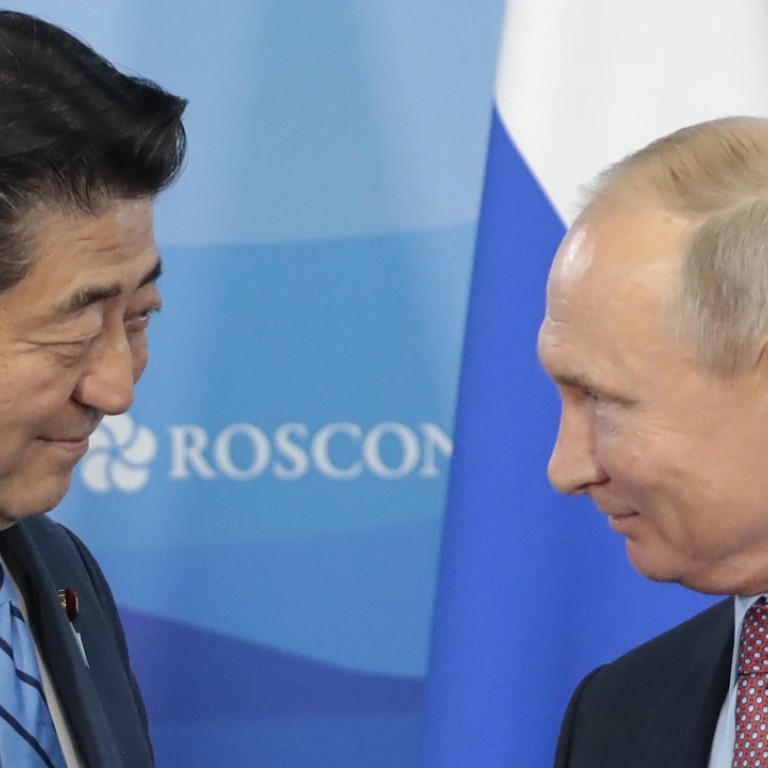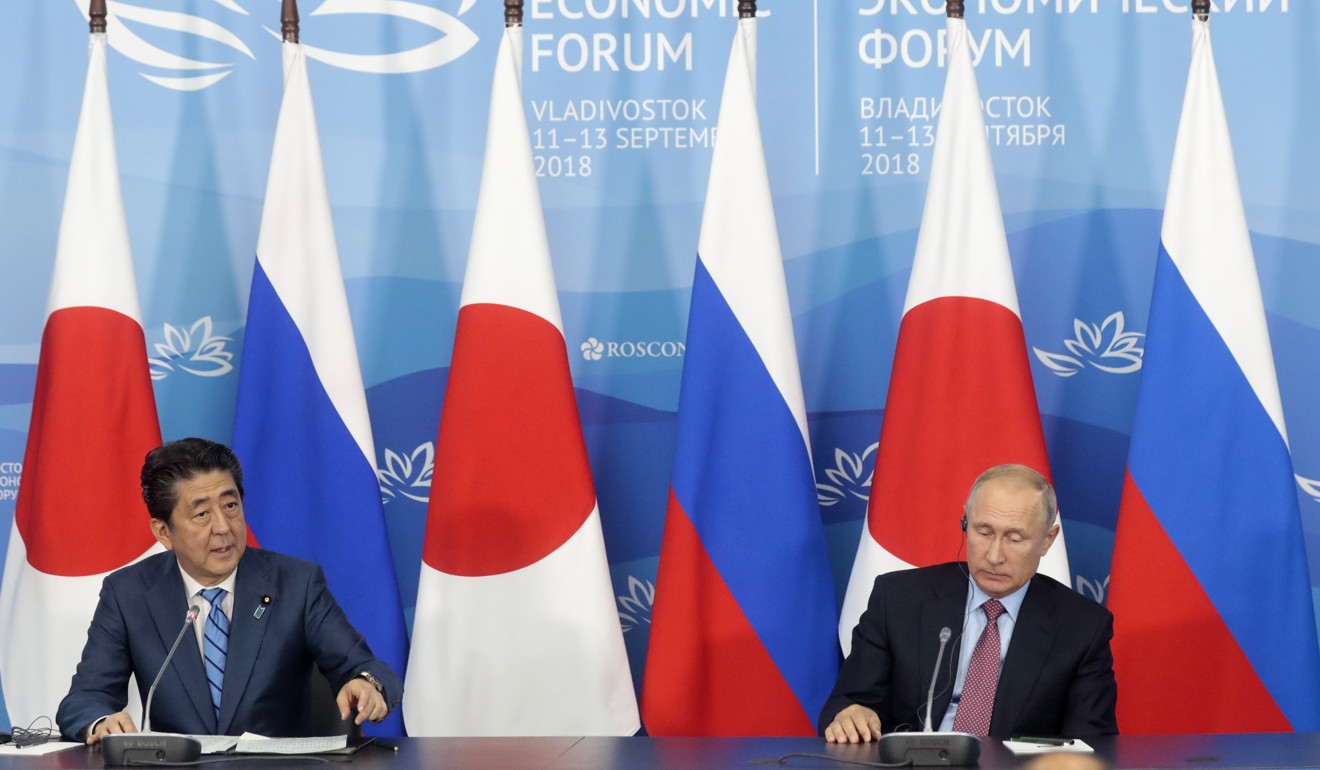
Japan’s Prime Minister Shinzo Abe, Russian President Vladimir Putin agree to promote economic programmes on disputed Kuril islands
Japan is looking to build trust through economic activities as a step toward settling the decades-long territorial row over the Russian-held islands
Japanese Prime Minister Shinzo Abe and Russian President Vladimir Putin agreed Monday on further details of joint economic activities on disputed islands off Japan’s northernmost main island of Hokkaido while making little progress on the territorial issue.
In a press conference after their summit in Vladivostok, Abe renewed his commitment to concluding a post-World War II peace treaty with Putin, which two countries have not signed due to the territorial row over the group of islands between the two countries.
Although both Abe and Putin admitted the island issue is difficult to conclude in the near future, the Japanese leader said, “I will continue to make utmost efforts with President Putin to bring an end to the issue.”
The islands of Etorofu, Kunashiri, Shikotan and the Habomai islet group, which are called the Northern Territories in Japan and the Southern Kurils in Russia, were seized by the Soviet Union at the end of second world war in 1945.

Japan is looking to build trust through economic activities as a step toward settling the decades-long territorial row over the Russian-held islands and eventually signing the peace treaty. Russia, for its part, aims to attract Japanese investment in the resource-rich but underdeveloped Far East region.
Abe said he and Putin approved a road map to realise the planned activities on the islets in the five areas they agreed on last year in Vladivostok, including aquaculture and tourism. Neither of them took questions from the press.
Abe said the two countries will dispatch business missions after failing to do so last month due to bad weather.
It remains unclear whether the two sides will be able to come up with a special framework that does not compromise either side’s legal position on the islands’ sovereignty or create legal problems in implementing the economic activities.
The Abe-Putin summit comes ahead of Russia’s planned large-scale military exercise in the Far East and Siberian regions, although Moscow has explained it will not take place on the contested islands.
Abe and Putin also confirmed their close cooperation toward the denuclearisation of North Korea ahead of what will be the third summit between South Korean President Moon Jae-in and the North’s leader Kim Jong-un scheduled for September 18 to 20.
Watch: Russia shows off naval power in July parade
The Eastern Economic Forum has been held since 2015 under Putin’s initiative aimed at attracting investment to the Far East region. Kim was invited to the event, but the Russian government said he will not take part.
The Japanese prime minister, along with other participating leaders, is scheduled to deliver a speech in Wednesday’s plenary session.
During his four-day stay in Vladivostok, Abe will separately meet with Chinese President Xi Jinping, South Korean Prime Minister Lee Nak-yon and Mongolian President Khaltmaa Battulga, according to the Japanese government.
In the Japan-China summit scheduled on Wednesday, Abe and Xi are expected to talk about how to promote ties further as this year marks the 40th anniversary of a bilateral peace and friendship treaty.
As part of high-level reciprocal visits, Abe is looking to fix the date of his planned visit to China on October 23, when the treaty took effect 40 years ago, Japanese government sources said.
Abe and Xi are likely to discuss ways to promote bilateral cooperation under Xi’s “Belt and Road Initiative” cross-border infrastructure initiative.

